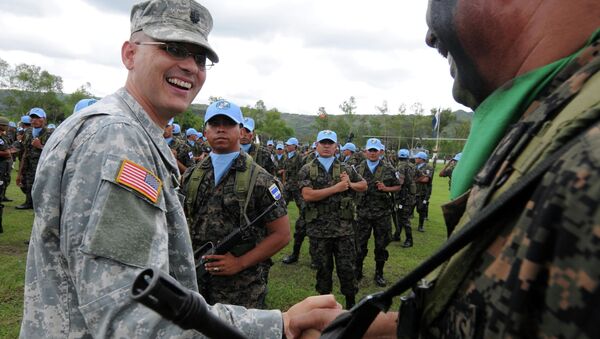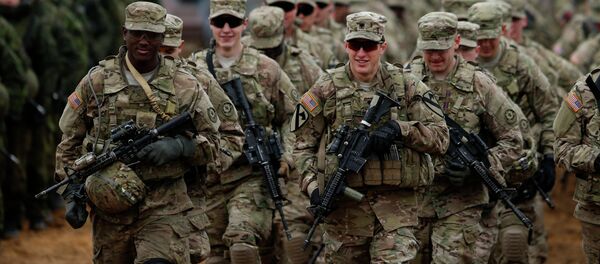After Hugo Chavez assumed power in Venezuela the process of regional integration and the creation of a regional system of collective security began. The striving of Latin America nations for broader political, economic and cultural independence has forced the US to use military force in response.
Fighting drug cartels and terrorist group has repeatedly been cited by Washington as a precondition for a military invasion. Actually, this is how the US tries to strengthen its military influence and broaden its hegemony in the region, he assumed.
Over the recent years, the US has taken numerous steps to bolster its military presence in Latin America.
The US also deployed marine units to Honduras, with the official reason cited as helping locals during the hurricane season. What is more, the two countries cooperate in fighting drug trafficking and training special police forces.
All of the above prove that Washington is currently re-militarizing the region, providing military assistance instead of an invasion, Dreitser said.
Colombia is a key nation in the US military doctrine for Latin America. Currently, Washington is implementing several initiatives aimed at, as US officials say, maintaining and bolstering security in the country.
The US has assisted Colombia in its war against drug cartels. For instance, from 2010 to 2015 Washington unveiled $3 billion to help Bogota fight cartels.
Now, the US is actively making efforts to develop cooperation between NATO and Colombia.
Finally, the US militarized push in Latin America is an effort to test how far the region can go in its military cooperation, and to understand what it can give for that, he added.
The recent buildup of regional supranational institutions (UNASUR, ALBA, Petrocaribe) which cannot be controlled from abroad is a signal for Washington to start using its armed forces, the analyst underscored.
"The US policy in Latin America is not much different from its actions in other parts of the world, including Africa, the Middle East and Asia by using its military forces to prevent nations from independent development. There is no doubt this is done to restore control over the region as well as hegemonic positions in the international arena," Draitser concluded.





